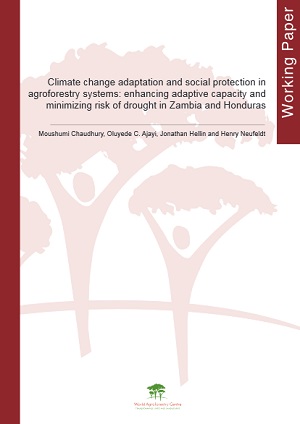Climate change adaptation and social protection in agroforestry systems: enhancing adaptive capacity and minimizing risk of drought in Zambia and Honduras
Abstract
This paper aims to understand the linkages between adaptive capacity and social protection within agroforestry contexts through a case study approach. It examines how elements of adaptive capacity which include assets, institutions, knowledge, innovation systems and governance, can support or be supported by social protection measures that enhance income and capabilities. For instance, a case study from Zambia demonstrates how adaptive capacity of farmers has led to the strengthening of their social protection to minimize the impact of drought. Another case study from Honduras demonstrates how formal social protection measures have, in turn, enhanced adaptive capacity. Understanding the linkages between adaptive capacity and social protection is important, especially in planning of adaptation initiatives. Analyzing adaptive capacity also helps to identify the element of adaptive capacity that should be invested upon in order for social protection measures to work.

